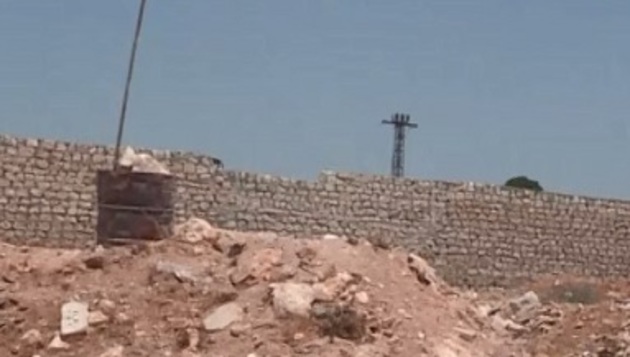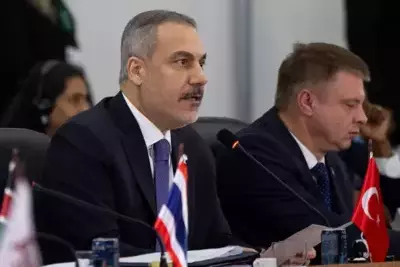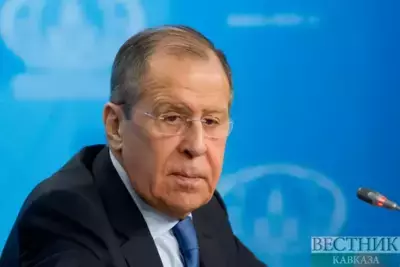ISIS terror group (banned in Russia) attacks in the Syrian desert have escalated over the past two weeks, causing heavy losses among the Syrian government forces and their allied militias. As Al-Monitor reports, Russia has intensified airstrikes on IS positions in support of regime forces as they attack IS positions and hideouts in the rugged desert areas.
A tribal official told Al-Monitor on condition of anonymity, “The Russian air raids have significantly increased since the beginning of October, targeting IS sites in the Ithriyah-Khanaser-Rusafa triangle. [Russian] planes also bombed IS sites in the rugged hills surrounding the Sukhnah area on the Deir ez-Zor-Homs road, killing 10 IS fighters and destroying several hideouts and fortifications used by the militant group.”
The official added, “The regime forces launched a counterattack against the organization in several areas of the Syrian desert, backed by heavy Russian air support and with the participation of allied militias. Chief among them are the tribal Tiger Forces led by Suheil al-Hassan, a brigadier general in the Syrian army who is backed by Russia; Liwa al-Quds; groups affiliated with the Lebanese Hezbollah; and a number of groups affiliated with Iranian militias such as the Baqir Brigade and the Afghan Fatemiyoun Brigade.”
On Oct. 1, Col. Tammam Khaddour of the Syrian army’s Fourth Armored Division commanded by Maher al-Assad, the brother of Syrian President Bashar al-Assad, was reported killed along with five other members of the division in an IS attack in the Hama desert.
On Sept. 26, Liwa al-Quds made a Facebook post mourning six of its members who were killed during clashes with IS fighters in the Jabal al-Amour area between the cities of Sukhna and Palmyra, east of Homs. On Sept. 22, eight Liwa al-Quds members were killed and 11 others wounded in an IS ambush. On Sept. 18, Liwa al-Quds said five other fighters were killed by IS.
On Sept. 18, Suleiman Kuntar, a first lieutenant in the Syrian regime's Republican Guard, was killed when his car was targeted in the southern Deir ez-Zor province.
Also in September, Liwa al-Quds in Aleppo arrested several of its members after they refused to join its affiliated groups both in the desert and in the vicinity of Sukhnah and Deir ez-Zor to fight IS cells.
Suhaib al-Jaber is a journalist for the Euphrates Post, a Syrian opposition website that covers news of Deir ez-Zor province and eastern Syria. He told Al-Monitor, “IS continues to launch surprise attacks from its hideouts in the Syrian desert. It hides in rugged terrain that is very difficult for any organized army to confront. The organization’s fighters hide in caves, trenches and mobile tents. They never stay in one place for more than a day or two, which makes the task of finding such cells almost impossible.”
He added, “This is what has caused heavy losses to the Iranian militias, the Assad regime and Russia over the past two weeks in the desert. The regime forces and Russia are desperately trying to break the control of IS in the desert with indiscriminate air raids. [Russia] is trying to limit the organization’s power by providing air support to ground attacks.”
The Russian military forces recently organized joint Russian-Syrian exercises near the city of Palmyra following an ambush against fighters of the Syrian regime forces. On Sept. 7, Syrian MI-24 helicopters participated in the drills alongside Russian MI-8 and KA-52 helicopters, Russia Today TV reported.
Commander of the Russian forces in Syria Andrei Yermakov told the Russian TASS news agency on Sept. 7 that the drills marked the first joint training of Russian and Syrian helicopter pilots in the Syrian desert.
Muhammed al-Sukari, a researcher of jihadist groups in Syria, told Al-Monitor that IS' activity “reflects Russia’s inability to tighten its control over the desert and contradicts Russian claims that the Syrian regime now controls 90% of Syria.”
He added, “Moscow has escalated its airstrikes as it seeks to eliminate the remnants of IS once and for all and protect its forces and the regime forces. … Russia is also keen to secure and protect international roads as these attacks undermine its efforts.”
Sukari continued, “Russia’s task in controlling the Syrian desert remains problematic as it is unable to maintain control of this strategic region" despite its efforts in Operation White Desert.
















